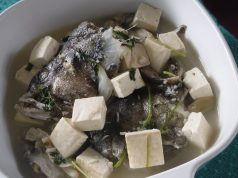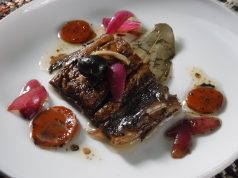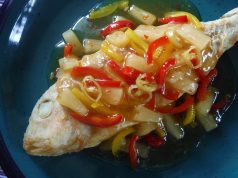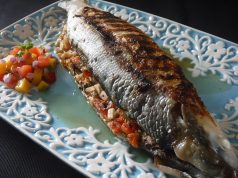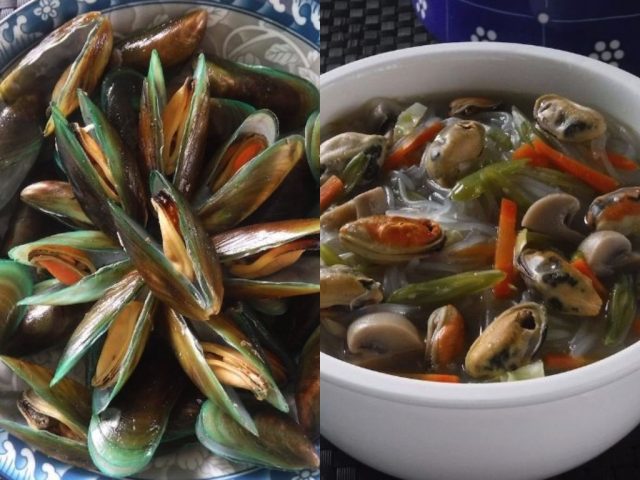
Except when there is red tide, mussels are one of the most versatile ingredients for chefs and homemakers to work with. They have a flavor of their own and require very little preparation. They can be simply stir-fried, cooked with other seafood, baked with cheese, turned into soup or salad, topped on one-dish meals like paella and jambalaya, or, yes, even made into crispy chips the way Caviteños do.
Recently, my husband Raff and I finally went home to our place in Cainta, Rizal, after having stayed with my eldest sister Susan for a year after Raff’s hospitalization brought about by his stroke. I needed much help in Raff’s care back then, and my sister was there. Her place was also strategic, so that everything was very accessible. Raff has since recovered nicely, and, now, the fresh air and space in Cainta are what he needs to get him back walking again.
Although we are mostly confined in the house and the surrounding areas, we enjoy lots of fresh fish and seafood (which comprise a majority of my and Raff’s diets) because there are ambulant fish vendors who come by the area every morning, selling bangus (milkfish), galunggong (round scad), tilapia (St. Peter’s fish), dalagang bukid, bisugo, yellow fin, mussels, sometimes even latô or ararosep (seaweed).
It is actually a couple, riding a tricycle with buckets of fish in and at the back of the cart, and when you buy from them, they lay out a huge sheet of plastic on the ground and fabricate your fish for you—as in wash, remove the gut and scales, and slice the way you want your fish to be sliced.
Recently, I bought a kilogram of fresh mussels from them. The mussels are small but the meat is full inside, and I found only about three pieces with shells slightly open (dead mussels) in the entire caboodle. So that’s a good batting average for freshness. I struggled to remove some of the seaweed attached to them and washed them under running water for a couple of times.
Then I began thinking of what to do with the mussels. The easiest and the tastiest was to just stir-fry them, so that’s what I did and that’s what we had for lunch. Afterwards, I turned the remaining mussels into a flavorful Mussels and Sotanghon Soup with Vegetables. During our stay with my sister, I saw how she made Mussels and Bihon Soup, but since I have just begun to rebuild my pantry at home and I found no bihon, I substituted it with sotanghon (vermicelli), and it was equally good.
I would like to share with Weekend Chef readers the two ways I prepared fresh mussels in one day so that they would not be boring.
Stir-fried Mussels
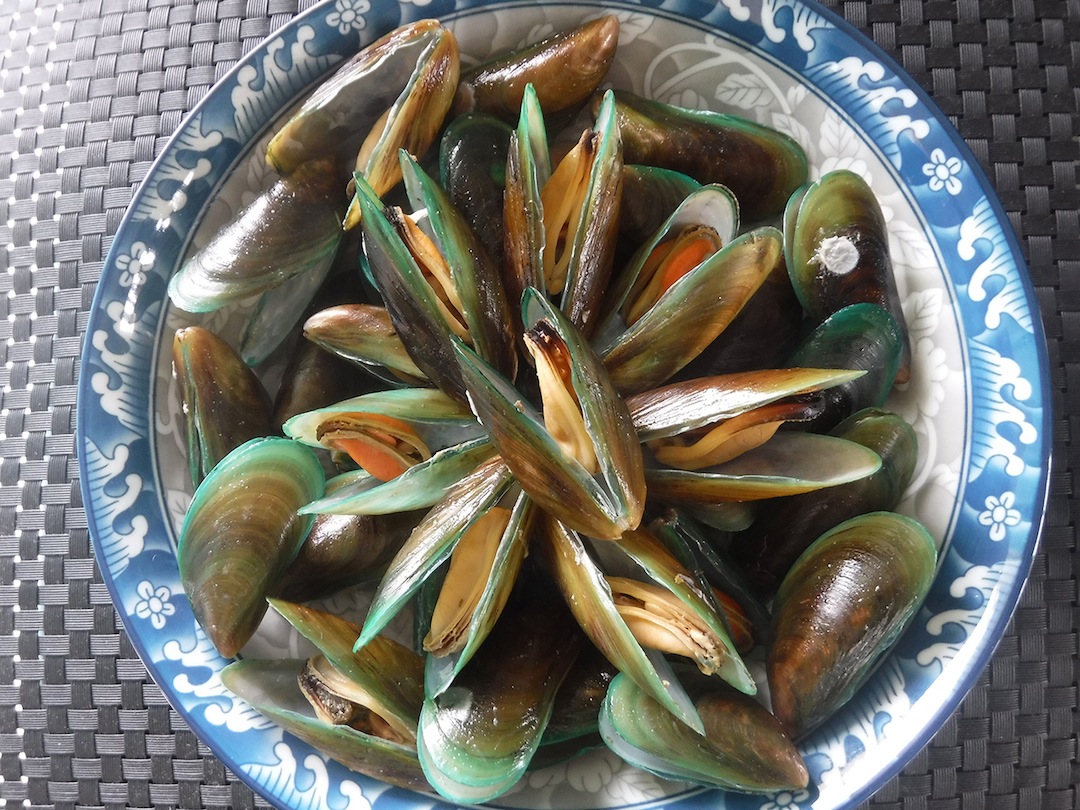
Ingredients
1 kg. fresh mussels*
2 Tbsps. vegetable oil
4-6 thin slices ginger
water, as needed
pepper to taste
Directions
1. Wash mussels and soak in a bowl of water while removing the seaweeds that are attached to them. Discard the ones with shells open because the mussels are dead.
2. Heat wok. Add cooking oil, and swirl to make sure the entire surface of the wok is covered. Add ginger slices. Once the aroma of the ginger is released, add mussels. Stir-fry.
3. Cover wok with lid and allow the heat and the steam inside to fully cook the mussels. The mussels will produce their own water with a naturally salty flavor, so no need to add salt. Just add a little pepper. Stir occasionally.
4. Once mussels are done, check them for shells that have remained closed. Discard.
Mussels and Sotanghon Soup with Vegetables
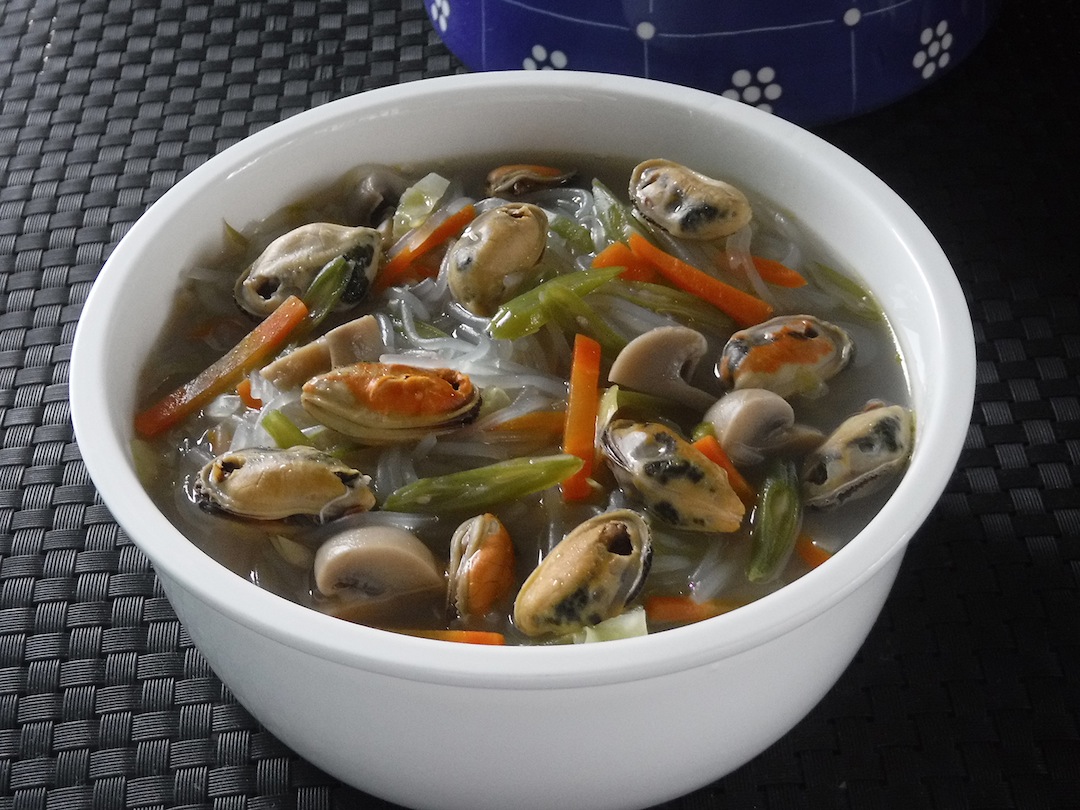
Ingredients
1/2 kg. stir-fried mussels
1 small pack sotanghon (vermicelli)
2 Tbsps. vegetable oil
3 cloves garlic, minced
1/2 pc. onion, sliced
1/2 pc. carrot, julienned
1 small bunch Baguio beans, sliced thinly diagonally
1 small can button mushrooms, sliced
1/4 pc. cabbage, sliced thinly
4 cups water
1 pc. chicken or fish cube
chicken powder or salt to taste
liquid seasoning and pepper to taste
Directions
1. Remove mussel meat from shell. Discard shells.
2. Soak sotanghon in water for 30 minutes or until tender and pliable.
3. Heat oil in stockpot. Sauté garlic and onion in it. Add carrot, Baguio beans, button mushrooms and cabbage. Add mussel meat.
4. Pour in water with drippings or sauce from stir-frying the mussels. Season with fish cube, additional chicken powder or salt, liquid seasoning and pepper to taste.






